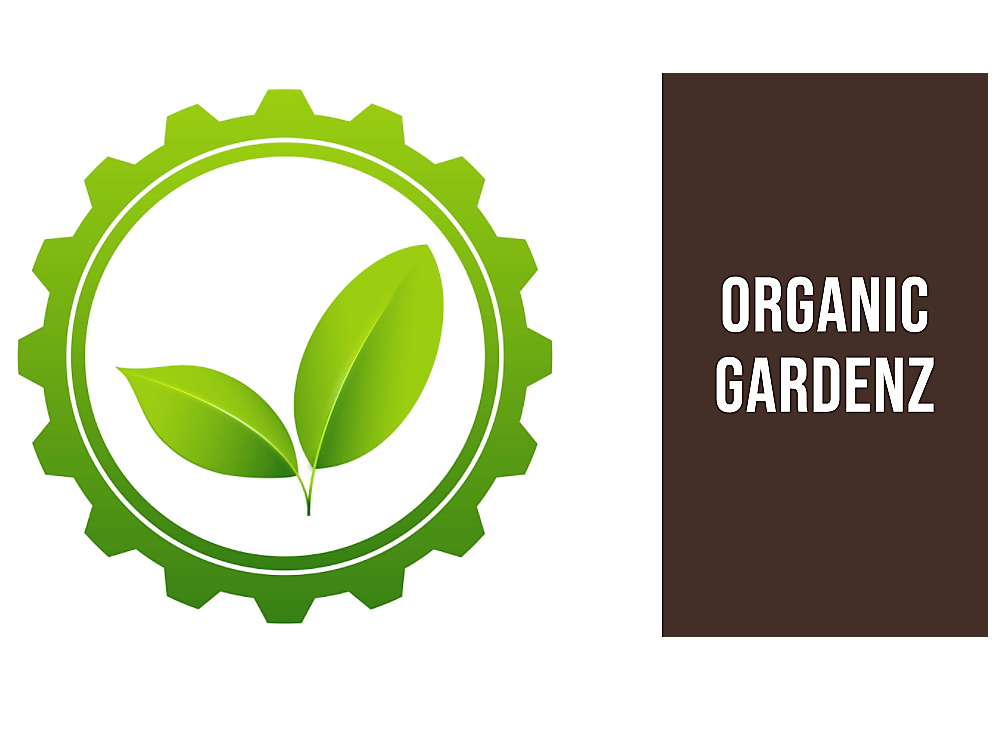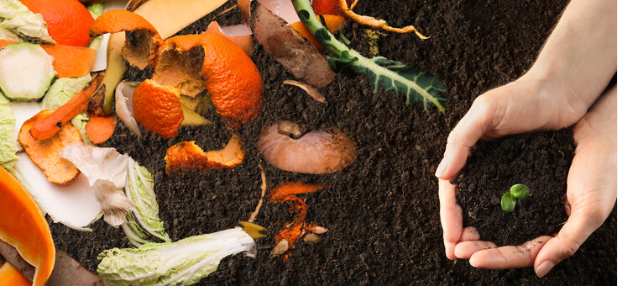Composting and Waste Management
The Importance of Composting and Waste Management
Composting and waste management are crucial practices for promoting a sustainable environment. Composting refers to the process of decomposing organic material, such as food scraps, grass clippings, and leaves, into a nutrient-rich soil amendment that can be used in gardening and farming. Waste management is the process of collecting, transporting, processing, recycling or disposing of waste materials in an environmentally friendly manner.
The importance of composting and waste management cannot be overstated. In recent years, there has been a growing concern about the negative impact that waste has on the environment.
Landfills are filling up at an alarming rate, leading to increased pollution and greenhouse gas emissions. By reducing the amount of waste that goes into landfills through composting and other waste reduction strategies, we can help mitigate these negative impacts on our planet.
The Benefits of Composting
Composting offers numerous benefits both for individuals as well as society at large. One of the most significant benefits is its ability to reduce landfill waste by diverting organic material from landfills where it would otherwise contribute to harmful greenhouse gas emissions such as methane gas. Instead, this organic material can be transformed into nutrient-rich soil which can be used for gardening or agriculture purposes.
In addition to its positive environmental impact by reducing landfill contribution towards climate change (methane gas), composting also improves soil quality by enhancing soil structure, microbial life activity which enhances water retention capacity among other factors essential for plant growth . It also reduces dependence on chemical fertilizers which often have negative effects on both human health and agriculture production.
Moreover , composting promotes circular economy whereby organic materials (foodscraps) are repurposed back into the food cycle via gardening or farming leading to more sustainable food production practices. Overall ,the benefits of composting are numerous for both individuals and society at large.
Composting

Composting is the process of turning organic waste into a nutrient-rich soil amendment. Organic waste comes from plant and animal materials that can be decomposed over time by microorganisms in soil. Composting is an important method of diverting waste from landfills and reducing greenhouse gas emissions.
Types of Composting
There are three main types of composting: home, commercial, and industrial. Home composting involves using a small-scale system to turn organic waste into compost for use in gardens or landscaping.
Commercial composting is done on a larger scale and involves collecting organic waste from businesses, institutions, and households for processing into compost products. Industrial composting takes place on an even larger scale and often involves using engineered systems to process large volumes of organic material.
Benefits of Composting
The benefits of composting are numerous. One major benefit is that it reduces the amount of organic waste sent to landfills, which reduces methane emissions – a potent greenhouse gas that contributes to climate change.
Additionally, the use of compost improves soil quality by adding nutrients and improving moisture retention. This results in healthier plants with higher yields.
Another benefit is that the use of compost can reduce water usage because it improves the water-holding capacity of soil. Overall, composting provides an important way to manage organic waste while also providing benefits for the environment and agriculture industry.
Home Composting
Composting at home is a great way to reduce household waste while creating a nutrient-rich soil amendment for gardens, lawns, and houseplants. Home composting involves breaking down organic materials such as food scraps, yard waste, and paper into a rich soil amendment through the process of decomposition. Composting can be done in small spaces such as balconies, porches, or even indoors with some methods.
Types of Home Composting
Vermicomposting and hot/cold composting are two popular methods of home composting. Vermicomposting uses worms to break down organic waste into nutrient-rich castings.
Hot composting involves maintaining the right balance of carbon (brown) materials such as leaves or straw and nitrogen (green) materials such as kitchen scraps or grass clippings in a bin that heats up over time due to microbial activity. Cold composting is a slower process that involves simply turning food and yard waste in an outdoor bin or pile.
How to Start Home Composting
To start home composting, decide what type of method will work best for your space and lifestyle. Collect brown (carbon-rich) materials such as leaves or shredded paper along with green (nitrogen-rich) materials like fruit scraps or garden clippings in a bin designated for compost only. It’s important to maintain the right balance of these ingredients so the pile decomposes evenly.
Tips for Successful Home Composting
*Aerate regularly by turning the pile every week to ensure it has enough oxygen.
*Maintain moisture levels so the pile is damp but not too wet.
*Avoid adding animal products like meat or dairy which attract pests and slow down decomposition.
*Shred or chop large pieces of waste to speed up the breakdown process.
*Use finished compost as needed to fertilize plants and enrich soil.
By composting at home, individuals can divert organic waste from landfills, reduce greenhouse gas emissions, and create a valuable soil amendment for their gardens. With the right method and care, anyone can successfully turn their food scraps and yard waste into a valuable resource for their home and community.
Commercial Composting
Commercial composting is a process that involves turning organic waste into compost on a larger scale than home composting. This type of composting is typically done by businesses, institutions or local governments. The end product can be used in agriculture, landscaping and gardening to improve soil fertility and structure.
Types of commercial composting
There are two main types of commercial composting: windrow and in-vessel. Windrow composting involves piling up organic waste in long rows called windrows, which are turned regularly to aerate the material and speed up the process.
In-vessel composting, on the other hand, involves using a closed container like a drum or tank to control temperature, moisture and airflow for optimal decomposition. Windrow composting is generally less expensive than in-vessel methods because it requires less equipment and maintenance.
However, it can take longer to produce finished compost and may generate odors if not managed properly. In-vessel systems require more upfront investment but can produce finished compost faster with better odor control.
Benefits and challenges of commercial composting
Commercial composting offers several benefits beyond just reducing landfill waste. It helps divert organics from the waste stream while creating a valuable resource that can be sold or used onsite.
It also reduces greenhouse gas emissions by preventing methane emissions from landfills. However, there are also challenges associated with commercial composting such as regulatory compliance for odor control and nutrient runoff prevention, as well as finding suitable locations for siting facilities that meet zoning requirements and community acceptance.
Despite these challenges, many businesses are investing in commercial composting programs due to the economic benefits of selling finished product or using it onsite for landscaping needs. Additionally, local governments are implementing policies to mandate diversion targets for organics from landfills which has increased demand for commercial organics processing facilities.
Waste Management
The term waste management refers to the collection, transportation, and disposal of waste. Waste can be classified into several categories such as municipal solid waste, hazardous waste, biomedical waste, electronic waste, construction debris, and others.
Different types of wastes have varying levels of potential harm to people and the environment and must be managed accordingly. Effective management of these wastes is critical for public health and environmental protection.
Waste Reduction Strategies
The most effective way to manage waste is by reducing it at the source. The three Rs (Reduce, Reuse, Recycle) are commonly used strategies for reducing wastes in households and industries. Reducing means minimizing our consumption in order to reduce the amount of waste generated in the first place.
Reusing involves finding creative ways to use products that would otherwise be discarded as trash. Recycling converts used materials into new products thereby reducing the amount of raw materials required to produce new products.
Other strategies for managing solid wastes include composting organic matter such as food scraps and yard trimmings instead of sending them to landfills or incinerators. Landfills are large sites where solid wastes are buried in soil whereas incinerators burn garbage using high temperatures generating energy but also air pollution.
Landfills vs Incineration as Waste Disposal Methods
Landfilling is a traditional method of disposing municipal solid wastes where garbage is buried underground in sanitary landfills with proper covers designed to prevent contamination from leachates (liquid generated by decomposition) into groundwater resources. However because landfills produce methane a greenhouse gas which contributes to climate change greenhouse gas emissions from landfilling can be reduced by capturing it through site-specific systems that convert it into energy or sell it back into natural gas pipelines. Incineration burns garbage at high temperatures which produces energy and reduces the volume of waste.
Despite this advantage, incineration releases toxic pollutants into the air, such as dioxins and heavy metals that can cause respiratory problems in humans and wildlife. Hence its use has become controversial and is not widely used.
Benefits of Waste Management
Environmental Benefits: Reduced pollution and Greenhouse gas emissions
Waste management is crucial to controlling our environmental impact. Pollution from waste disposal can harm our health, contaminate water sources, and destroy wildlife habitats. By reducing landfills and incineration, we can reduce the amount of pollution released into the air, water, and soil.
Additionally, proper waste management can help reduce greenhouse gas emissions that contribute to climate change. When organic waste breaks down in landfills or incinerators without the proper management techniques in place, it leads to the release of harmful gases like methane and carbon dioxide.
These gases contribute significantly to global warming and climate change. However, by implementing composting and recycling programs as part of waste management initiatives, we can limit the amount of organic material that ends up in landfills or incinerators.
Economic Benefits: Creation Of Jobs In The Recycling Industry
Recycling plays a significant role in creating jobs in many communities around the world. The recycling industry employs millions of people globally and helps support small businesses that focus on repurposing materials that would otherwise end up in landfills or incinerators.
Furthermore, properly managing waste can also save money for local governments by decreasing landfill usage fees and extending landfill lifespans. As more people become aware of the importance of recycling and reducing their environmental impact, there is an even greater potential for job growth within the recycling industry.
Social Benefits: Improved Public Health
Properly managing waste has significant social benefits as well. When garbage piles up on streets or is left unattended with no regular collection schedules it creates a breeding ground for germs that negatively affect public health.
Additionally, handling hazardous materials improperly such as batteries or electronics could lead to contamination which could cause diseases such as cancer amongst others. Therefore promoting proper waste management practices can help reduce the spread of disease, leading to better public health outcomes and an overall improvement in quality of life.
Conclusion
Waste management and composting programs have become an integral aspect of many communities around the world. They offer numerous benefits, including environmental protection, job creation, and improved public health outcomes. In today’s times where pollution is already at alarming levels, implementing proper waste management practices has never been more important.
By making small changes in our daily habits such as recycling or composting at home or work can help lead to significant impact on a global scale. It is our responsibility to take action in safeguarding our environment by building sustainable communities through waste management practices that ensure a better future for generations to come.

